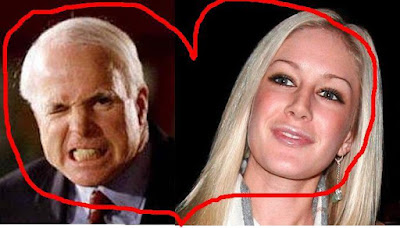Thoughts on "Other Desert Cities
In simplest terms, the story is about a daughter who returns home at Christmas to visit her parents, aunt and brother. A once-promising novelist, she announces to her family the imminent publication of a memoir dredging up a pivotal and tragic event in the family's history - a wound that her parents don't want reopened.All the character archetypes are familiar—the sister is the whiny, ubereducated woah-is-me liberal, her younger brother, the overlooked child who self-anesthetizes via superficiality and a biting sarcastic streak, mom and dad of the old republican guard, and the crazy alcoholic Aunt who likes to dish out truths but can’t take them herself.
In the first act the roles feel somewhat stale and predictable. While the dialogue is snappy and fun, the situation feels worn and stale. Rachel Griffiths, Justin Kirk and Judith Light bring little dimension to their roles. They come off as flat, and not particularly engaging. What saves the first act from mediocrity is the wonderfully bitchy matriarch Stockard Channing and Stacy Keach, whose nuanced performance as head of the family was moving and believable. Part Ronald Reagan, part Swede Levov, this character’s layered complicated role and conflicting sense of self comes through in his constant stopping and starting of thoughts, his pleading with his wife and child, his desire above all to keep the past dead and buried. Here we start to realize that all is not as it seems, that the image of republican rigidness and self-righteousness his son and daughter see is merely a role, one that in the final act of the play is effectively turned on its head. It is revealed that how we have come to understand his character is really just a single perspective, lacking all the evidence.
Few plays have pulled off the twist ending with more aplomb than Other Desert Cities. These old guard conservatives are a lot more complicated than the one-dimensional caricatures their children see. Families, like politics, operate on the same type of carefully constructed fictions that require utter devotion to in order to survive.






Fortunately, because this was the first presidential debate I've had a chance to attend in person, I distracted myself from the night's vapidity by acting all wide eyed about my surroundings. First, let's set the scene: as a credentialed member of the press, I was not actually allowed into the debate. No, the press is herded into an enormous "press file," where everyone gets a little seat and a little table and stares up together at a giant television set showing the debate. This is, as you might imagine, a bit surreal: I drove three hours to watch TV. Not only that, but I'm watching TV with people whom I'm used to seeing on TV. Howard Fineman, Candy Crowley and me. Watching TV together. Shit damn motherfucker. Second, the food and drink: ABC News, which organized the debate, had boxed lunches (even though it was dinner time). I took a roast beef sandwich and I poured myself about three cups of coffee. There was no liquor to be seen, so I had more coffee. Third, the celebs: Obama Girl, most importantly. I had my picture taken with her. I refuse to show it to anyone. Finally, the serious take away: a debate like this probably helps Obama. He's a protest candidate in many ways, similar to Jimmy Carter in 76. He's a vessel for people's immense frustration with our politics and our political class. So even though he didn't seem particularly prepared for the harsh line of questioning, he came out intact. On the way back to Washington, I stopped into a 711 at about 3 AM and conducted an impromptu focus group with the cashier. I asked him what he had thought of the debate. "I like Obama," he said. "He's no bullshit." In a night full of bullshit, the guy who smells the least smells the best.